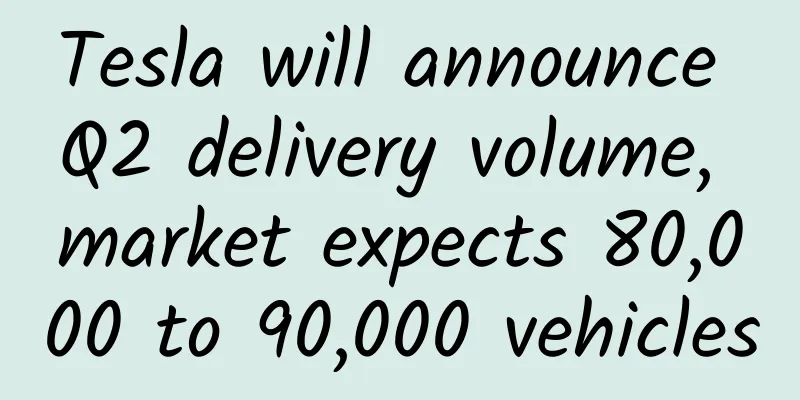Why is it only a matter of time before Alibaba and Tencent enter the unmanned shelf market?

|
As of the end of September, at least 16 unmanned shelves have received investment, with the highest amount reaching 140 million yuan. Although there have been pessimists who questioned whether unmanned shelves are a "pseudo-business model" and "a loss-making business", the repeatedly refreshed financing amount still makes it a dark horse in the new retail industry and a new outlet after shared power banks and shared bicycles. In the field of e-commerce, Taobao shortened the space between goods and users, and JD.com shortened the time on top of Taobao. The same is true when O2O rises. Meituan and Ele.me shorten the distance between consumers and restaurants, and unmanned convenience stores solve the problem of consumers queuing. From this perspective, unmanned shelves further compress space and time to the extreme: placing goods within the reach of consumers. Unmanned shelves are in line with the increasingly lazy psychology of users. Looking at all new retail startups, unmanned shelves have reached their limit in terms of space and time, and can almost be said to be "right in front of us." With the increase in shopping, the value of big data has also been promoted, and thus it has the ability to monetize online traffic in the future. What is the entry logic of unmanned shelves? Yan Liming, former general manager of Juhuasuan, and Lv Guangyu, former senior executive of Meituan Dianping (Zhang Tao, Wang Xing, Ye Shuhong, Wang Huiwen, etc.) have successively joined the unmanned shelf entrepreneurial craze, and Ele.me also recently launched an unmanned shelf. If Lu Guangyu's entrepreneurial project only represents him personally, then Ele.me is the first small giant in the Internet industry to enter the unmanned shelves, and the logic behind the layout is actually the same as Meituan's entry into the shared power bank not long ago. Previously, most people thought that shared power banks were a good business. But what is more important is that they have successfully occupied consumption scenarios such as restaurants and coffee shops. At present, shared power banks are only used as an emergency supplement in restaurants. Once they are fully rooted in the restaurant industry, using their own App to match user big data, they can suddenly become a tool for restaurant queues. If we extend it one step further, a new Dianping with mobile power banks as the entrance will be born. As we all know, Meituan started out as a catering company, with catering and entertainment being its core, its star business, and its lifeblood. No matter who wants to take a piece of this pie, Meituan will take action to resist (buy or attack), so it is reasonable for Meituan to launch a shared power bank. Similar to Meituan’s power bank, Ele.me’s investment in unmanned shelves is the same. According to Analysys International, in the second quarter of 2017, 80% of the 45.95 billion yuan spent on China’s takeout market was contributed by white-collar workers. In the early days, unmanned shelves could only cover CBDs, which coincided with the main consumers of takeout. However, unlike power banks, the cross-border impact of unmanned shelves on Ele.me may be far greater than the impact of power banks on Meituan. Unmanned shelves are similar to Taobao and JD.com many years ago. Once they are rolled out in CBD companies and the in-house purchase consumption scenarios are developed, they will save all aspects of consumption scenarios that overlap with their products. The first to be affected are the surrounding retail entities around the CBD. Both convenience stores and unmanned convenience stores will be affected. In other words, since unmanned shelves can sell snacks and drinks, they can also sell fruits and paper towels. When the supply chain and big data support are sufficient, why not sell takeaway breakfast? When we sort out this order, it is easy to understand why Ele.me entered the field of unmanned shelves. It can be seen that Meituan’s power banks and Ele.me’s unmanned shelves have different trends, but the same internal logic: they are both forward-looking defensive investments, aimed at preventing the barriers they have built for food delivery from being eroded by new models. Still a money-burning business To complete such a long-term business model, sufficient offline deployment is needed to obtain big data, and technical research and development and a strong flexible supply chain are also needed for support. The bigger problem is that the value of unmanned shelves can only be reflected through a "Didi-style" marathon run and evolution. Small players cannot afford such a long time. 1. Low efficiency and slow start At present, most unmanned shelf projects are expanded through self-operation due to geographical restrictions. Although self-operation has strong control, the biggest problem is the slow progress of offline expansion. We can make an analogy here: under the leadership of Gan Jiawei, Meituan maintained a sales force of 10,000 people, and incomplete statistics show that it was around 20,000 people during its heyday. Such costs are far beyond the financing of several unmanned shelf companies. On the other hand, in the era of group buying, if Nuomi negotiates with the same merchants, Meituan can also negotiate. However, once the unmanned shelves sign a contract with a certain company, it often becomes a de facto exclusive. This also greatly increases the difficulty for entrants to expand. According to the on-site investigation of Lianxianjia, the efficiency of unmanned shelf promotion personnel in China is currently 7 shelves per person per day. Less than 40% of them can actually bring positive turnover. The best situation at present is to negotiate with companies with less than 100 people and more than 30 people. By visiting the building to talk with the administration, the goods can be put on the shelves within one or two weeks after signing the contract. The fastest cycle takes two weeks. Compared with group buying, this speed of advancement is actually quite inefficient. Once a giant enters the market and spends money to pave the way quickly, small players will fall behind and leave. 2. Loss-making period lasts at least 2 years As far as current technology is concerned, unmanned shelves can only carry some plastic-sealed fast-moving consumer goods, and cannot currently handle processed foods, which have the highest gross profit margins in convenience stores. The gross profit margin of retail stores without processed foods is 15%, while the current damage rate of goods in the unmanned shelves industry is over 10%, and the overall performance is that the income is not enough to cover the expenses. Currently, all unmanned shelves are operating at a loss. According to the situation, unmanned shelves are still in the limelight, so they will lose money in operation for at least two years. Even companies that have raised 140 million yuan in financing cannot afford it. 3. High technology investment costs If small players can still afford the money for expansion and operation and maintenance of the first two points, then technological development will be the last straw that breaks the camel's back. At present, all unmanned shelves are in the "Stone Age" in terms of technology. Even Ele.me's "E-point Convenience" was hastily launched without building a technical threshold. Most unmanned shelves are really just a shelf + a payment code, which does not realize the value of unmanned shelves at all. In the future, whoever can step up R&D, upgrade and transform the unmanned shelves, and cooperate with face recognition, motion recording, and big data, can build a threshold and reflect the true value of unmanned shelves. The huge R&D costs and the subsequent development of "high-cost shelves" will also eliminate small players with insufficient capital. It’s only a matter of time before BAT enters the market When discussing the entry of giants, we need to consider whether there is anything worth the attention of giants. In addition to being a business, unmanned shelves have three most meaningful values in Yifei's eyes. 1. The value of big data Based on the semi-open nature of unmanned shelves, they must be promoted first in CBD in China. CBD is an area where white-collar workers are concentrated. In the future, based on the current unmanned shelves with technology upgrades and identifiable consumption, the value of big data in this area will be fully reflected. From the user's purchasing behavior, we can judge the taste and preference of a certain user, and even infer the date of her menstruation from the data of a female user with high repurchase rate. When the unmanned shelf system and supply chain are complete, big data calculations will ensure that each company's shelves should be filled with products that the company's employees like. Faced with such a data model, which Internet giant would not be interested? 2. Social Value Each unmanned shelf itself exists based on an independent and closed corporate entity. Unlike Alipay, a general-use transaction app that is obsessed with social interaction, users of unmanned shelves are already familiar with each other in real life, and there are many intersections. After the unmanned shelves are upgraded in the future, they will definitely guide users to the app, and then these company-based "business acquaintance circles" will naturally form. 3. Entrance value There is no need to worry about losing money on shelf goods, as long as users form a high-frequency usage habit, this will be a new entry point for online reverse flow in the future. At present, the domestic mobile Internet dividend is coming to an end, and the cost of obtaining traffic for various products has become very high. Such a potential new entry point in the future has become very valuable. Therefore, the entry of BAT is a foregone conclusion, it is just a matter of time. As a winner of Toutiao's Qingyun Plan and Baijiahao's Bai+ Plan, the 2019 Baidu Digital Author of the Year, the Baijiahao's Most Popular Author in the Technology Field, the 2019 Sogou Technology and Culture Author, and the 2021 Baijiahao Quarterly Influential Creator, he has won many awards, including the 2013 Sohu Best Industry Media Person, the 2015 China New Media Entrepreneurship Competition Beijing Third Place, the 2015 Guangmang Experience Award, the 2015 China New Media Entrepreneurship Competition Finals Third Place, and the 2018 Baidu Dynamic Annual Powerful Celebrity. |
>>: NIO to release new ES6, targeting Tesla Model Y
Recommend
After spending hundreds of thousands of dollars on the event, will the boss give up? How to review an activity?
A friend said to me at a gathering in the circle....
What is the difference between hair dryers that cost dozens, hundreds, or thousands?
If you go to an online store to buy "hair dr...
Insect fighting, cock fighting, bull fighting... do you know about tea fighting?
Lv Weitao, Curator at the National Museum of Chin...
The magic weapon for subway advertisements to flood the screen!
As the leader in outdoor advertising, subway adve...
Scientific evidence: Saying "I love you" to the opposite sex every day can greatly increase your success rate?
Your browser does not support the video tag Autho...
How to hide your hot update bundle files?
[[379259]] This article is reprinted from the WeC...
An analysis of the entire process of Keep’s customer acquisition: How to gain 140 million users in 3 years
In October 2017, Keep surpassed Yuedongquan Runni...
Resolution, frame rate, HDR, color reproduction, how to choose? Hisense Hard Pro monitor: I want them all
I believe everyone is familiar with the Hisense b...
Heavy rains have hit many parts of my country, and dead earthworms can be seen everywhere! Will the population decrease?
Since the beginning of summer in 2024, many parts...
How to place a huge amount of money | FAQs on placing a huge amount of money
This article is a Q&A about Juliang Qianchuan...
7 Common Marketing Methods Marketers Must Know (I)
Every year there are many good marketing cases . ...
Google moves V8 code to Github
Following Google's plan to move the Go langua...
Google Maps gets expanded traffic predictions
Google announced today that it is expanding its c...
Known as the "most difficult railway tunnel to build", an important milestone has been reached →
Author: Shi Xiangqi and Li Chuanfu Amid the mount...
How much does it cost to customize a health care product mini program in Yongzhou?
According to industry insiders, mini programs wil...









